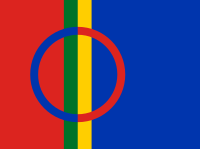
Photo from wikipedia
ABSTRACT The aim of this study first aims to forward our empirical knowledge of how older Sami experience healthcare encounters in Norway and what they expect in terms of future… Click to show full abstract
ABSTRACT The aim of this study first aims to forward our empirical knowledge of how older Sami experience healthcare encounters in Norway and what they expect in terms of future care services, and second, to forward our understanding of how more culturally safe services could be offered to the Sami population, 30 years after they were officially recognised as an Indigenous People. A qualitative interpretative and constructivist research design was used. 12 older South Sami were interviewed about their experiences with healthcare encounters, and their expectations for future care services. The results showed that the participants sometimes felt deprioritised and misunderstood by healthcare professionals. Moreover, they sometimes experienced that healthcare professionals had little or no knowledge about Sami history, culture and cosmology. They worried that they would not be accepted for being Sami if one day they would have to move into a nursing home. To conclude, the participants of this study are situated in a colonising context characterised by personal and collective experiences of accumulated discrimination that have taken place over many generations. The concepts of health equity and accumulated discrimination provide useful insights in the further development of culturally safe services for Indigenous Peoples in Norway and beyond.
Journal Title: International Journal of Circumpolar Health
Year Published: 2022
Link to full text (if available)
Share on Social Media: Sign Up to like & get
recommendations!